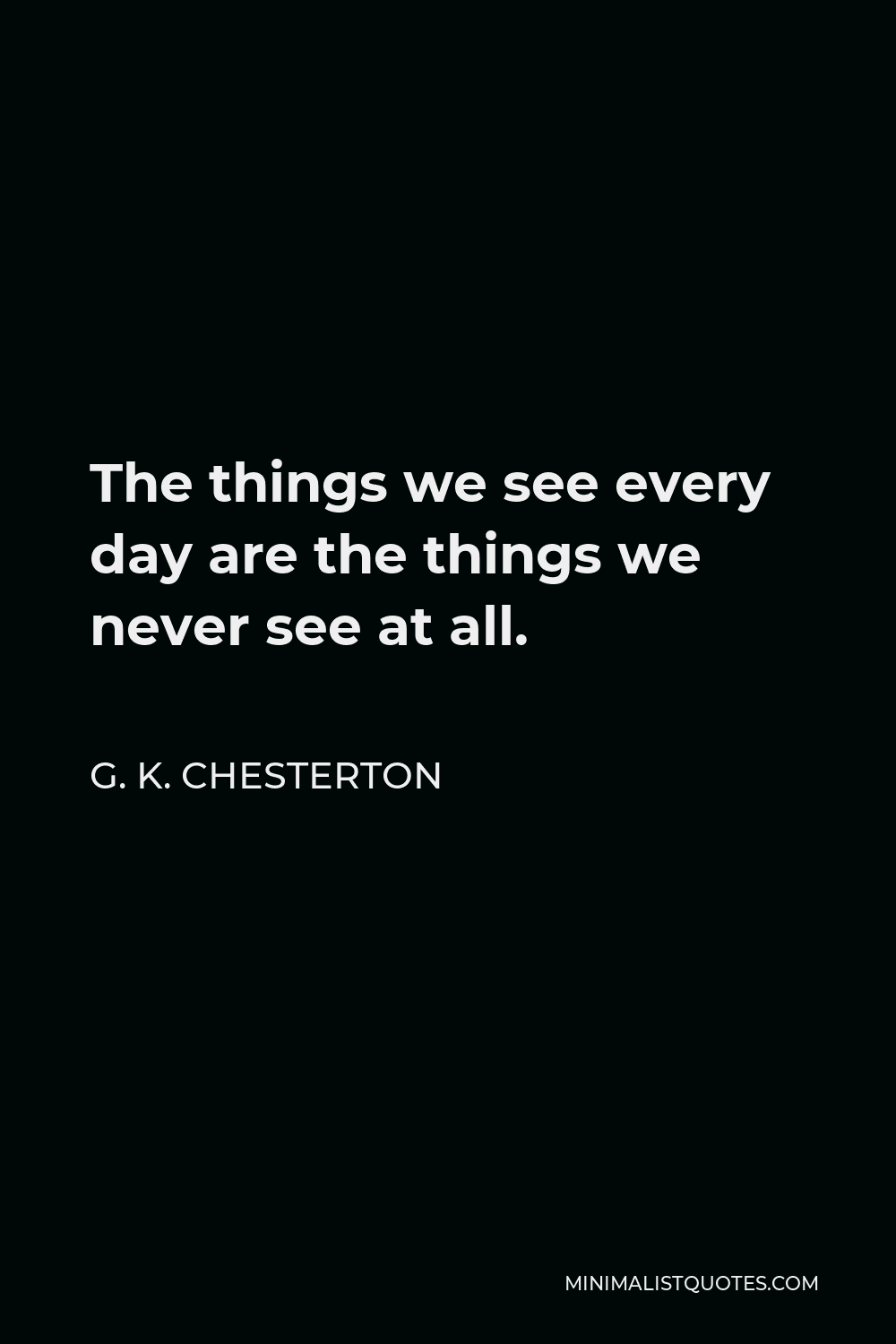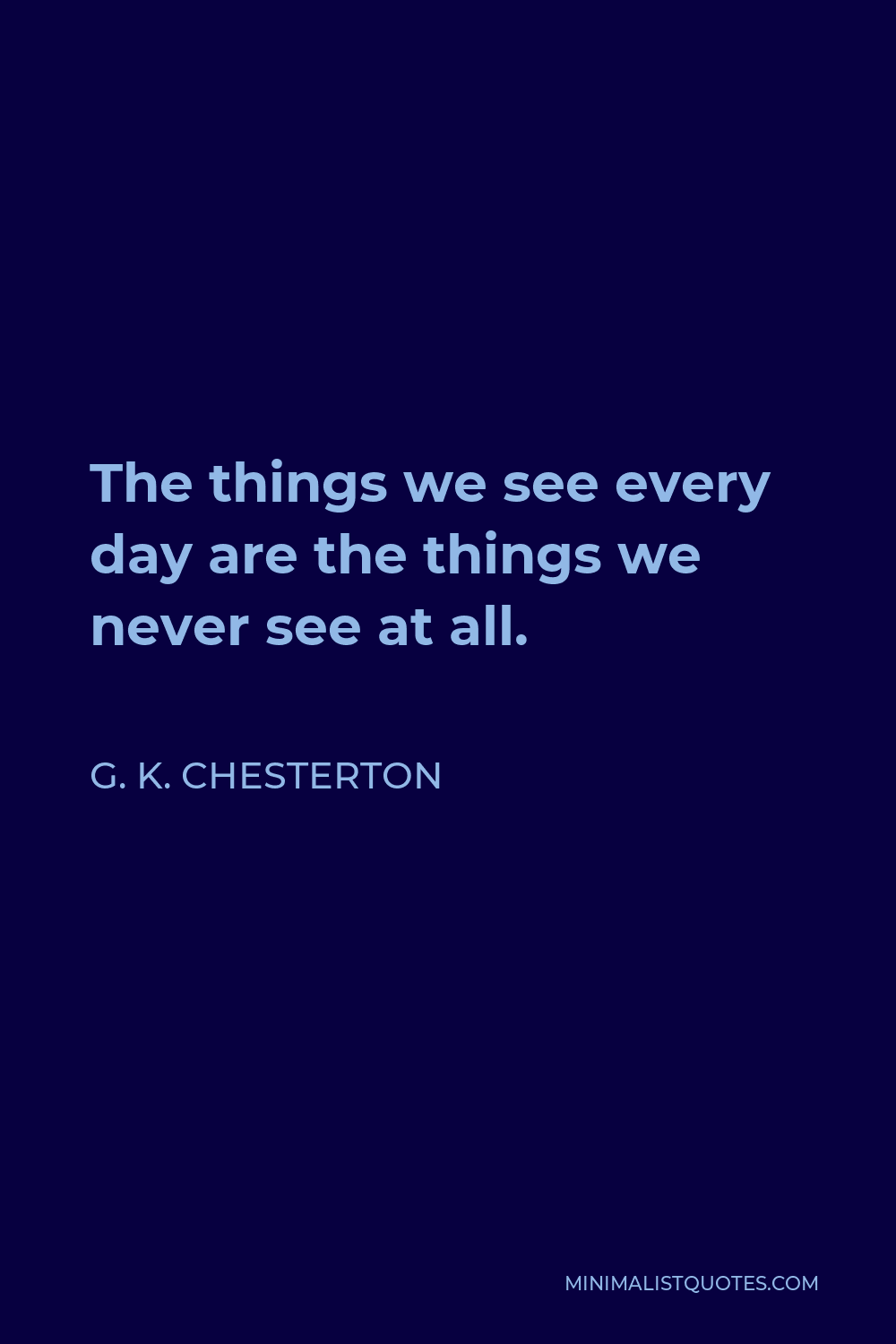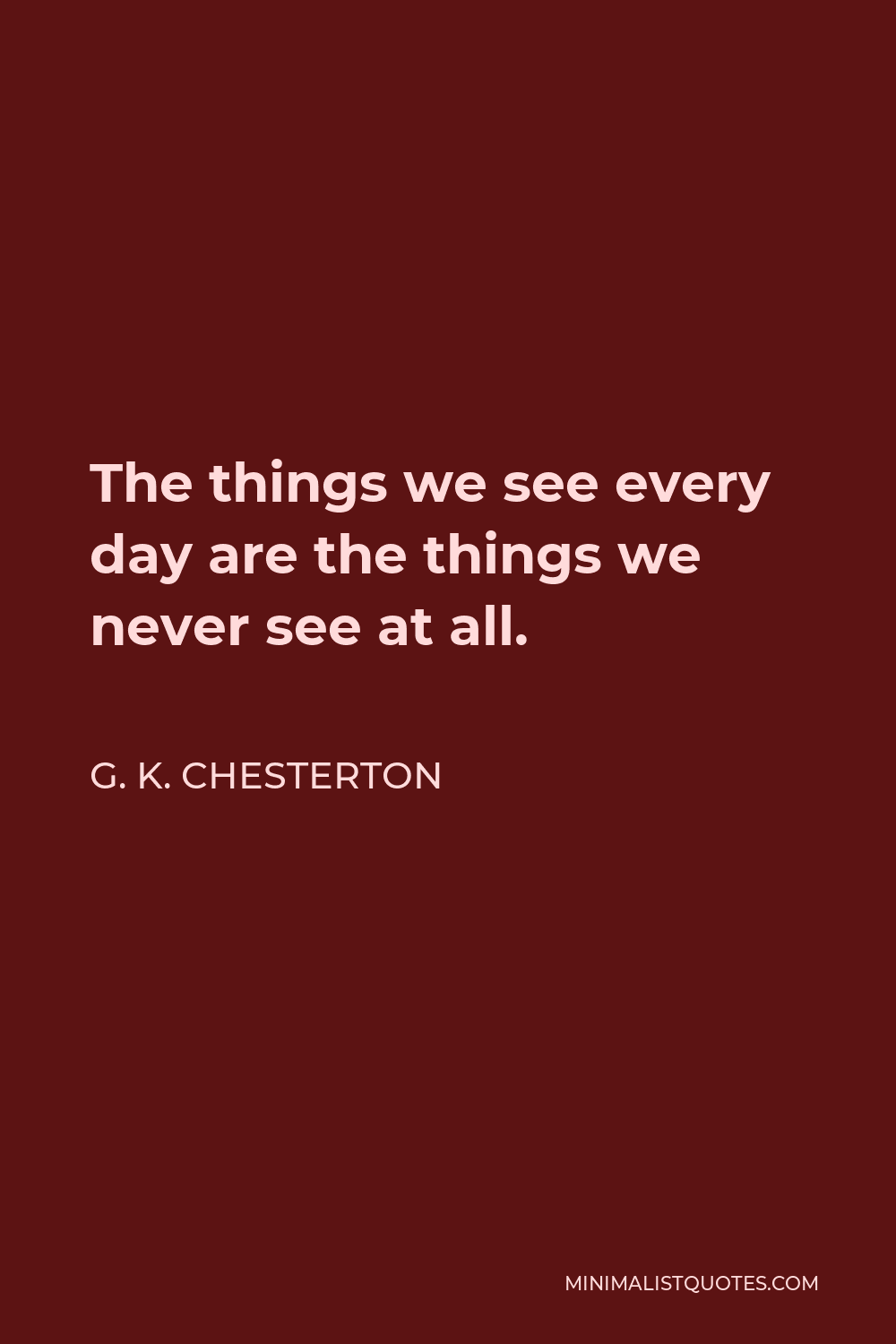The Darwinian movement has made no difference to mankind, except that, instead of talking unphilosophically about philosophy, they now talk unscientifically about science.
G. K. CHESTERTONThe things we see every day are the things we never see at all.
More G. K. Chesterton Quotes
-





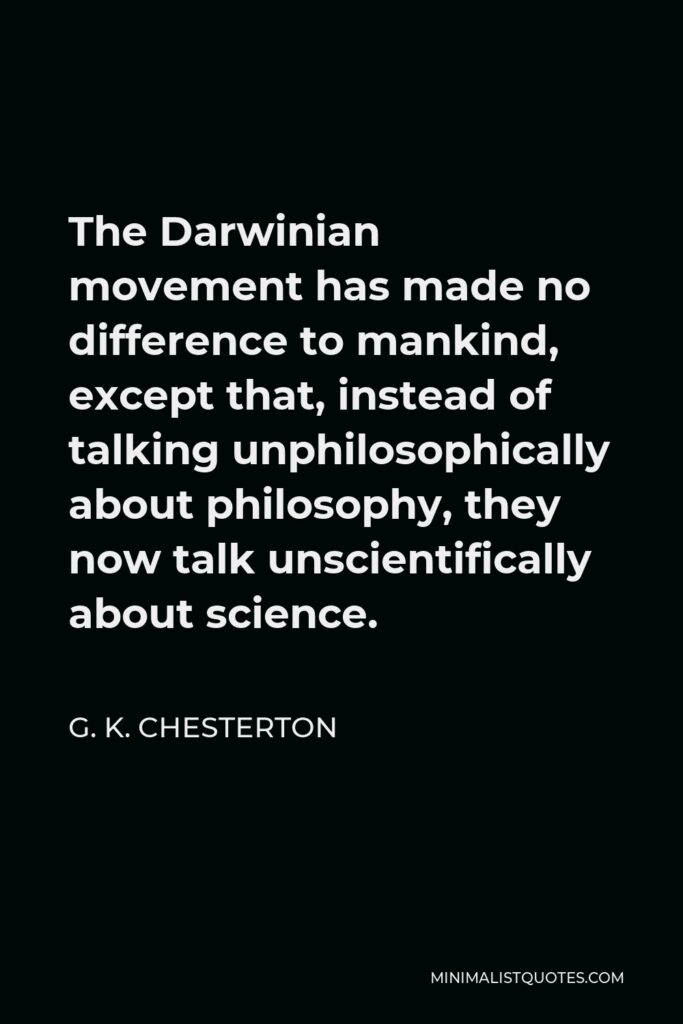

-







How you think when you lose determines how long it will be until you win.
G. K. CHESTERTON -







Exactly at the instant when hope ceases to be reasonable it begins to be useful.
G. K. CHESTERTON -







The past is not what it was.
G. K. CHESTERTON -







Unless a man becomes the enemy of an evil, he will not even become its slave but rather its champion.
G. K. CHESTERTON -





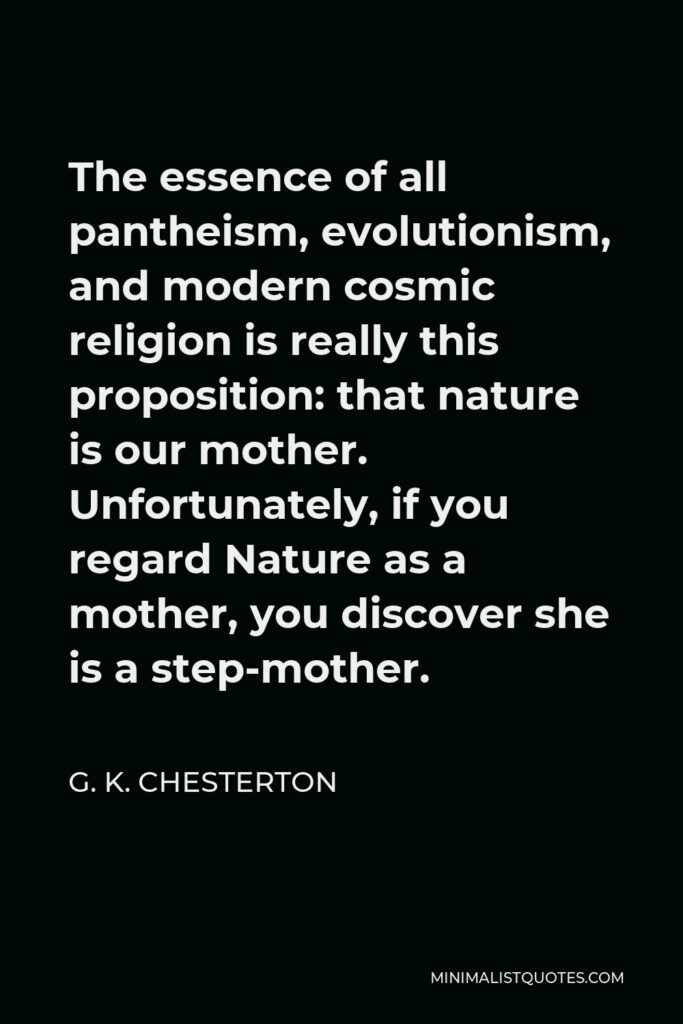

The essence of all pantheism, evolutionism, and modern cosmic religion is really this proposition: that nature is our mother. Unfortunately, if you regard Nature as a mother, you discover she is a step-mother.
G. K. CHESTERTON -





![G. K. Chesterton Quote - It [feminism] is mixed up with a muddled idea that women are free when they serve their employers but slaves when they help their husbands.](https://minimalistquotes.com/wp-content/uploads/2021/11/it-feminism-is-mixed-up-with-a-muddled-idea-that-w-683x1024.jpg)

It [feminism] is mixed up with a muddled idea that women are free when they serve their employers but slaves when they help their husbands.
G. K. CHESTERTON -







We make our friends; we make our enemies; but God makes our next door neighbour.
G. K. CHESTERTON -







If you argue with a madman, it is extremely probable that you will get the worst of it; for in many ways his mind moves all the quicker for not being delayed by the things that go with good judgment.
G. K. CHESTERTON -







Right is Right even if nobody does it. Wrong is wrong even if everybody is wrong about it.
G. K. CHESTERTON -







Agnostic is the Greek word, for the Latin word, for ignorant.
G. K. CHESTERTON -







It is absurd for the Evolutionist to complain that it is unthinkable for an admittedly unthinkable God to make everything out of nothing and then pretend that it is more thinkable that nothing should turn itself into everything.
G. K. CHESTERTON -







No man can break any of the Ten Commandments. He can only break himself against them.
G. K. CHESTERTON -







I have known many happy marriages, but never a compatible one. The whole aim of marriage is to fight through and survive the instant when incompatibility becomes unquestionable. For a man and a woman, as such, are incompatible.
G. K. CHESTERTON -







One may understand the cosmos, but never the ego; the self is more distant than any star.
G. K. CHESTERTON -







Stick to the man who looks out of the window and tries to understand the world. Keep clear of the man who looks in at the window and tries to understand you.
G. K. CHESTERTON
